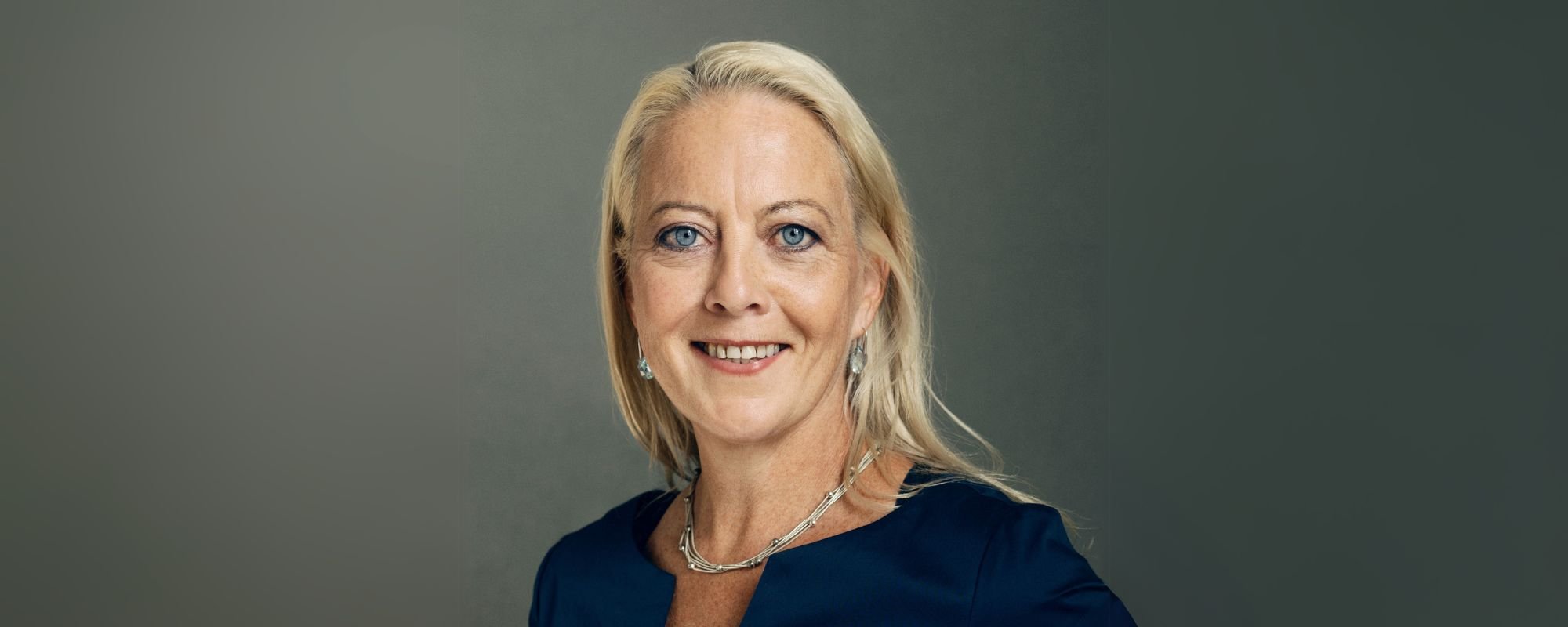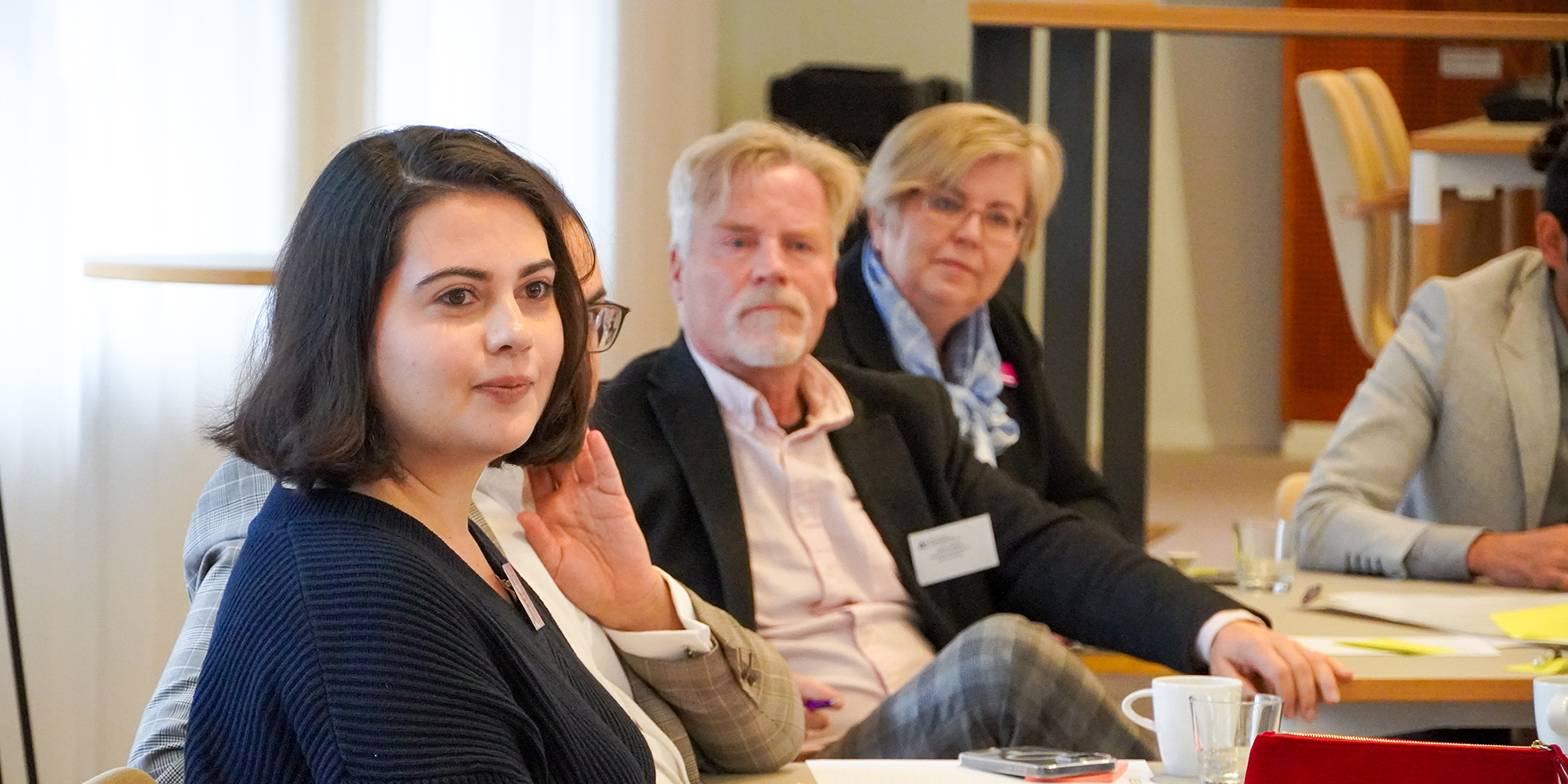“Great companies that face massive changes almost always take the wrong direction,” said Emeritus Professor Michael L. Tushman at Aalto EE’s Executive Arena event for leaders and senior executives.
Around 120 invited guests from top management across various organizations preregistered for the event focusing on the power of emotions during organizational transformations, held at Aalto University Töölö on Tuesday, October 15, 2024.
Professor Tushman, from the prestigious Harvard Business School, has dedicated his career to researching strategic innovation, leadership, and ambidexterity. In business terms, ambidexterity refers to a company’s ability to continue running its existing business while simultaneously innovating new kinds of business.
"Your job, as senior executives, is to help your people and companies reinvent themselves."
This capability is crucial for all companies to secure their future, especially now as many businesses face major disruptions due to technological advancements and the push for more sustainable practices.
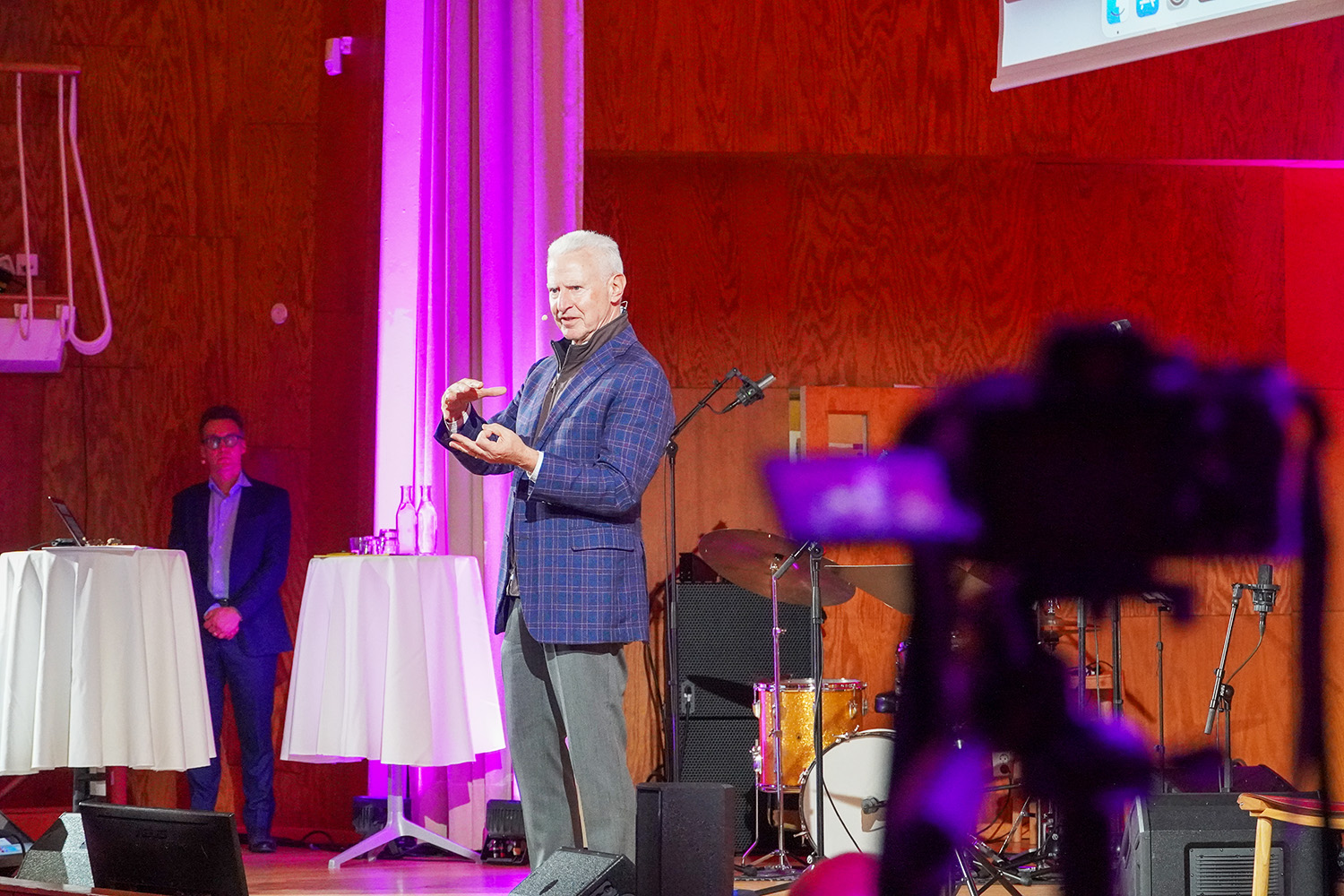
In his keynote, Tushman emphasized that being truly ambidextrous is very difficult.
Tushman emphasized that most companies, regardless of size, struggle with this balance. He noted that being truly ambidextrous is very difficult. In his keynote, Tushman cited a recent PwC report indicating that 40% of CEOs believe their organizations will no longer be viable in ten years if they continue on their current path.
“Your job, as senior executives, is to help your people and companies reinvent themselves,” Tushman said, stressing that playing two strategic games simultaneously is key – and very challenging.
“Knowing stuff is much easier than doing it.”
Keep these two things in mind
To succeed in balancing “exploitation” (maintaining the existing revenue-generating business) and “exploration” (creating new business innovations), Tushman suggested keeping two points in mind.
First, your company needs to learn faster than its competitors and providing the necessary space for innovation is essential. He noted that allowing freedom to innovate openly generates many solutions quickly, which may include a lot of junk – but within that junk, there are pieces of gold.
Tushman’s second point focused on leaders’ ability to manage emotions: transformations evoke emotions, and companies that manage these emotions well will outperform those that don’t.
The importance of emotional intelligence and considering emotions was also highlighted by the second keynote speaker, Professor Timo Vuori from Aalto University. Vuori’s research suggests that emotions play a substantial role in strategy work and leading organizational change and transformation.
"Disruptions happen, and they cause emotions. Those who manage them better are more likely to become winners."
Vuori and Tushman recently collaborated on a research article about Nokia’s 2011 decision to adopt the Windows platform for its mobile phones, and Vuori presented their findings during his talk.
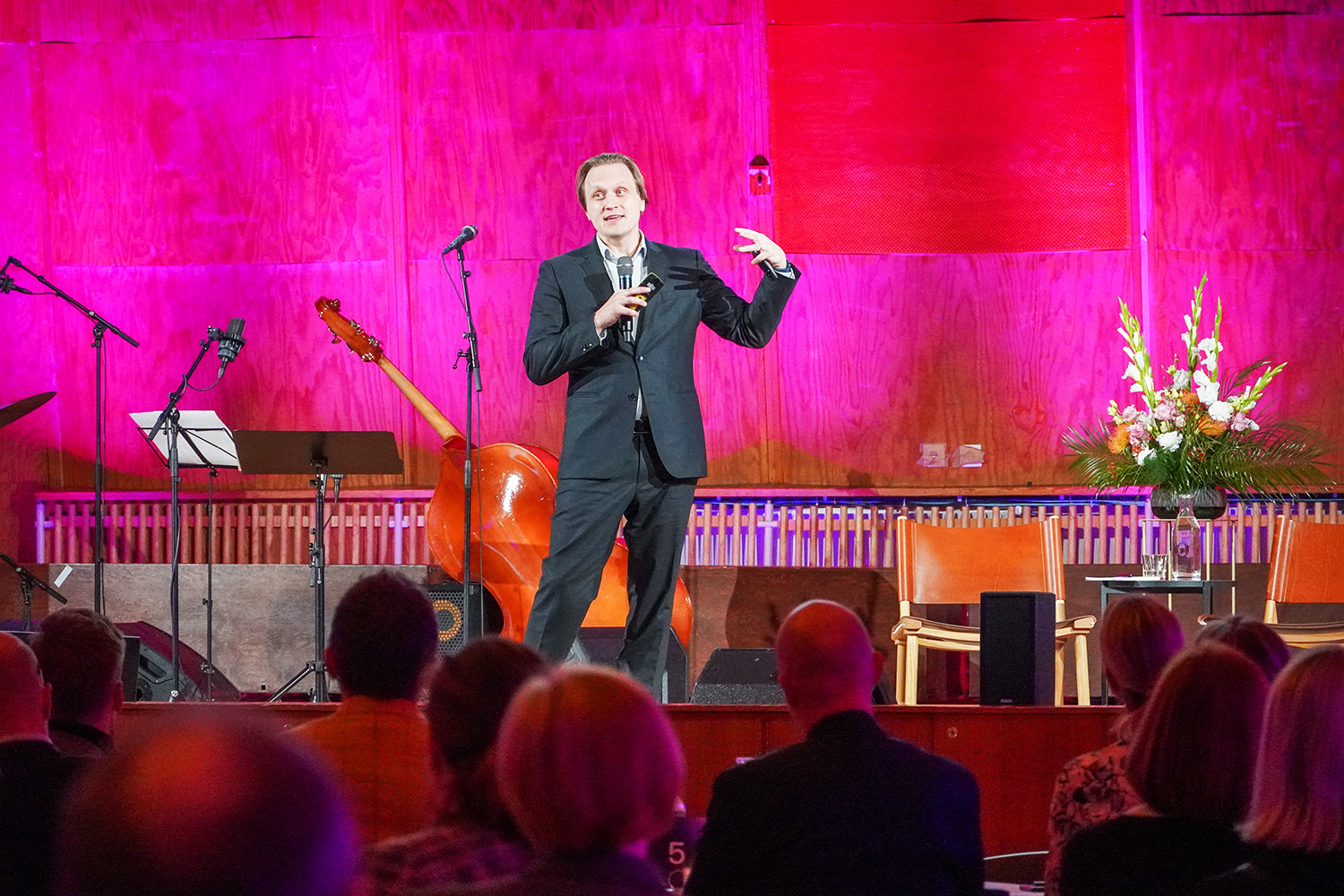
Timo Vuori is well-known for his research on the former mobile phone giant Nokia.
The researchers found that new market entrants can unsettle longstanding beliefs, causing anxiety and decision-making challenges among top management. Executives often focus too narrowly on their firm’s ability to compete within a new platform rather than the platform’s overall competitiveness. Changes in company boundaries and the emotional appeal of potential partners significantly influence their decisions, leading executives to favor emotionally attractive options.
“Disruptions happen, and they cause emotions. Those who manage them better are more likely to become winners than those who don’t,” summarized Vuori.
Build psychological safety in the workplace
Sari Baldauf, Chair of the Board of Directors at Nokia since 2020, has had a remarkable career at Nokia and other technology companies. In 1998, Fortune magazine named her the most influential female executive, and in 2022, the Wall Street Journal recognized her as the most successful female executive.
As the third keynote speaker at the Executive Arena, Baldauf shared the challenges and experiences she has faced in leading transformation throughout her career.
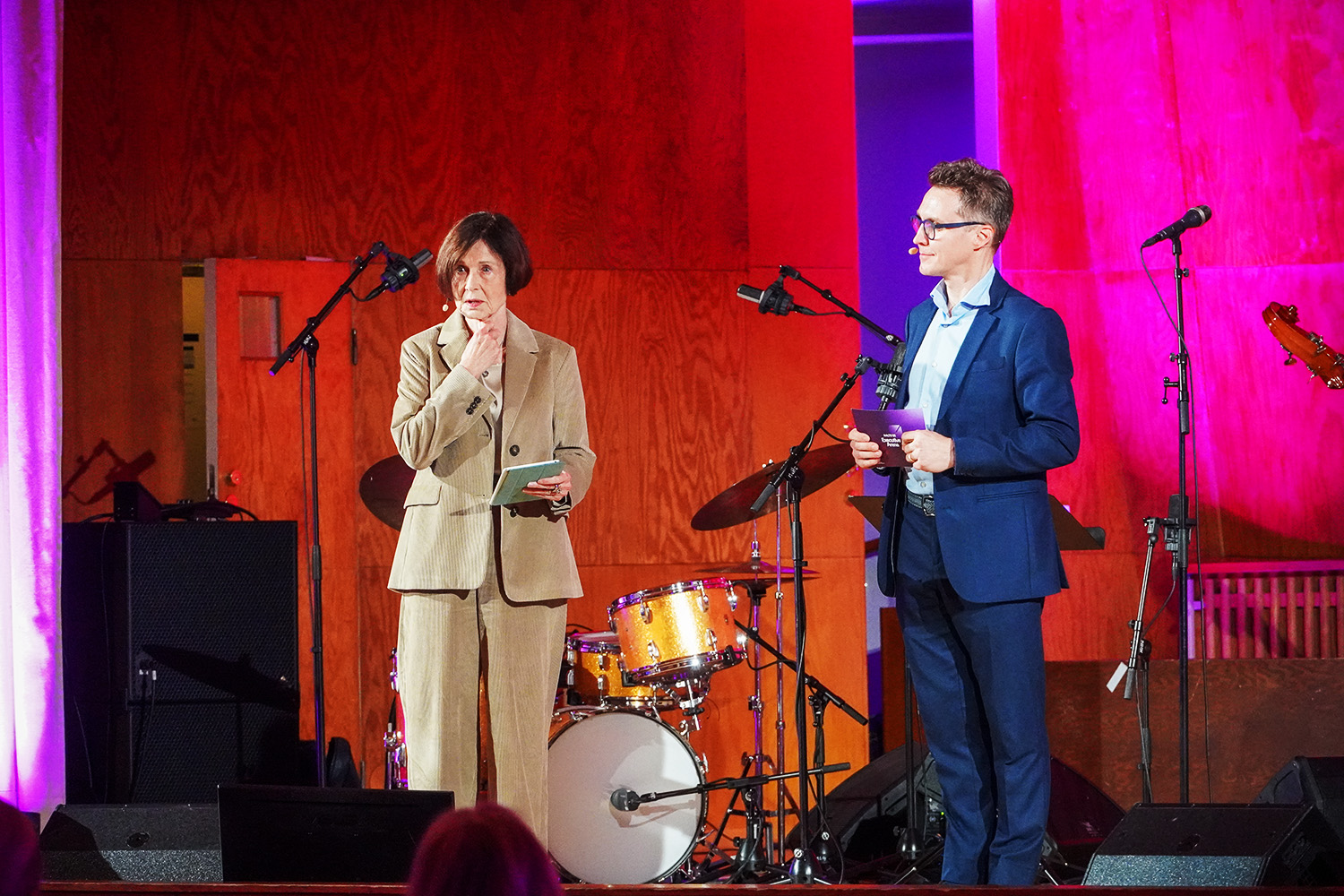
Sari Baldauf emphasized the importance of letting people themselves in the workplace. Patrick Furu from Aalto EE was one of the event hosts.
In line with Professors Tushman and Vuori, Baldauf emphasized the importance of considering emotions, especially in leading oneself, and creating work environments where mistakes are part of the process, diversity is valued, and people can safely be their authentic selves.
When asked how authenticity can be increased in workplaces, Baldauf responded that the key lies in building trusting relationships. Leaders should have the emotional sensitivity to observe what happens in the community and the skill to make people curious and excited about new developments rather than seeing them as threats.
According to Baldauf, leaders must have strategic foresight and be able to envision how the world will look in the coming decades. “You must start building competencies now to meet the needs you will have in ten to twenty years,” she said.
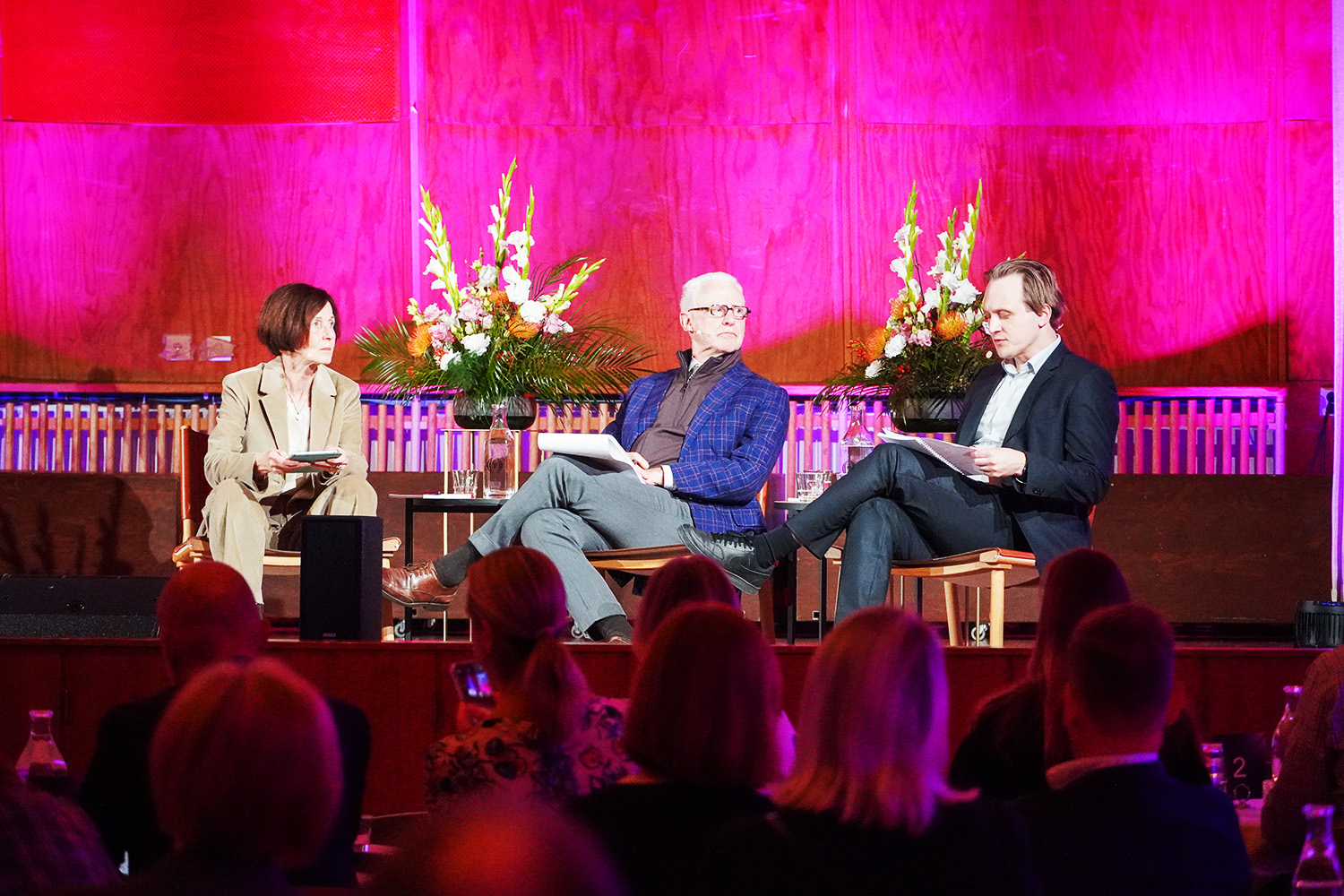
Sari Baldauf, Michael L. Tushman, and Timo Vuori in a panel discussion.
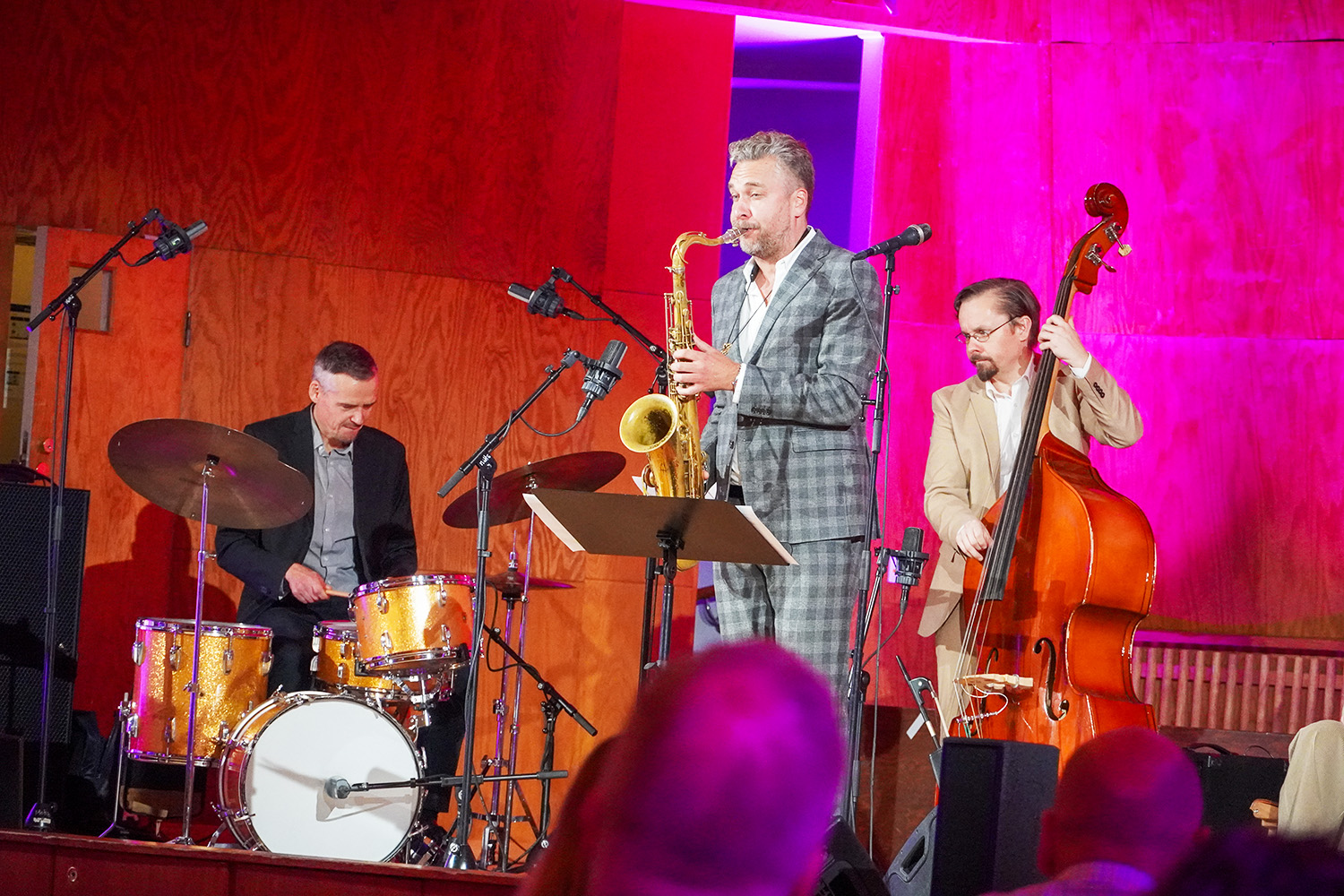
Timo Lassy Trio performed at the event and played the keynote speakers' favorite songs, among jazz classics.
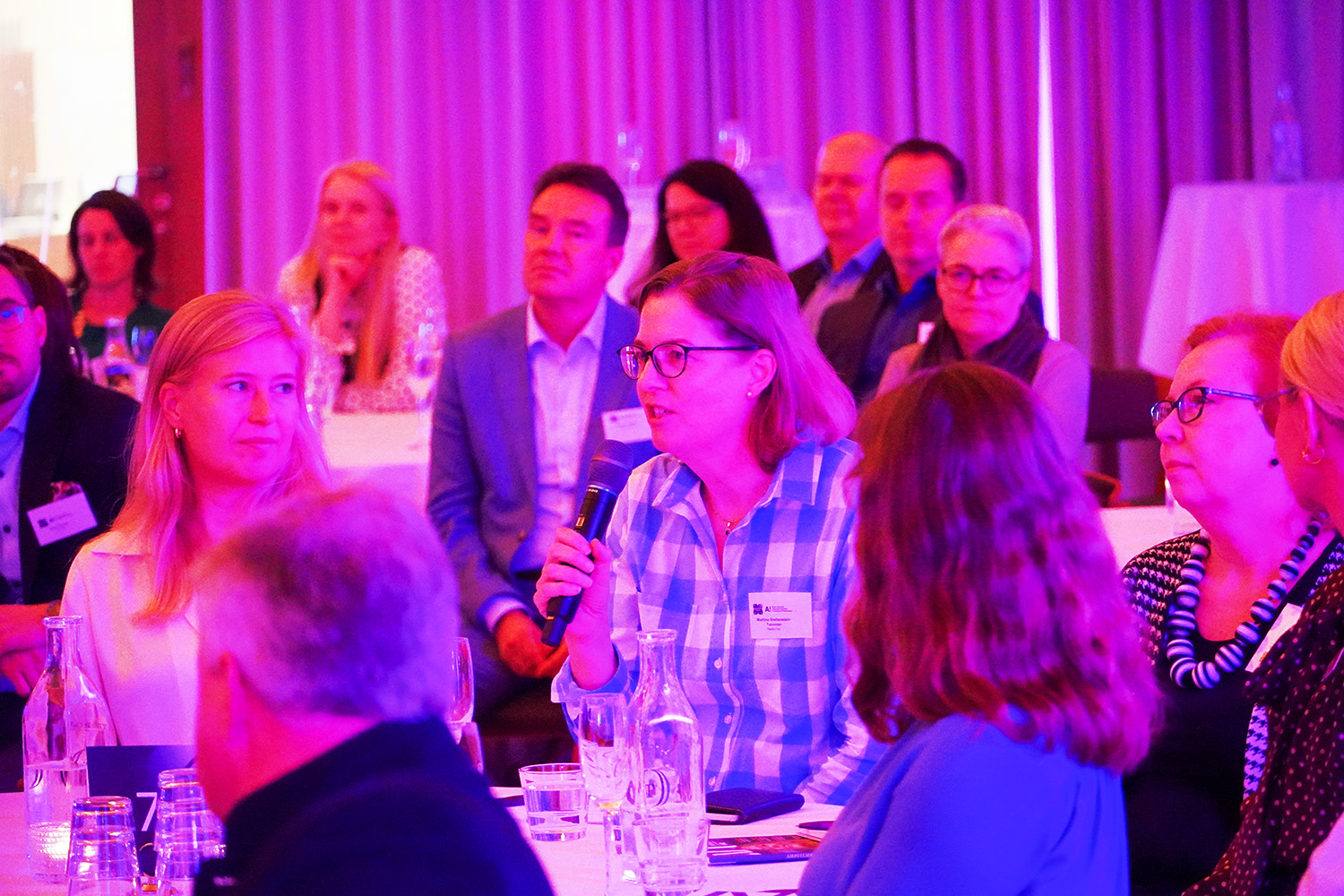
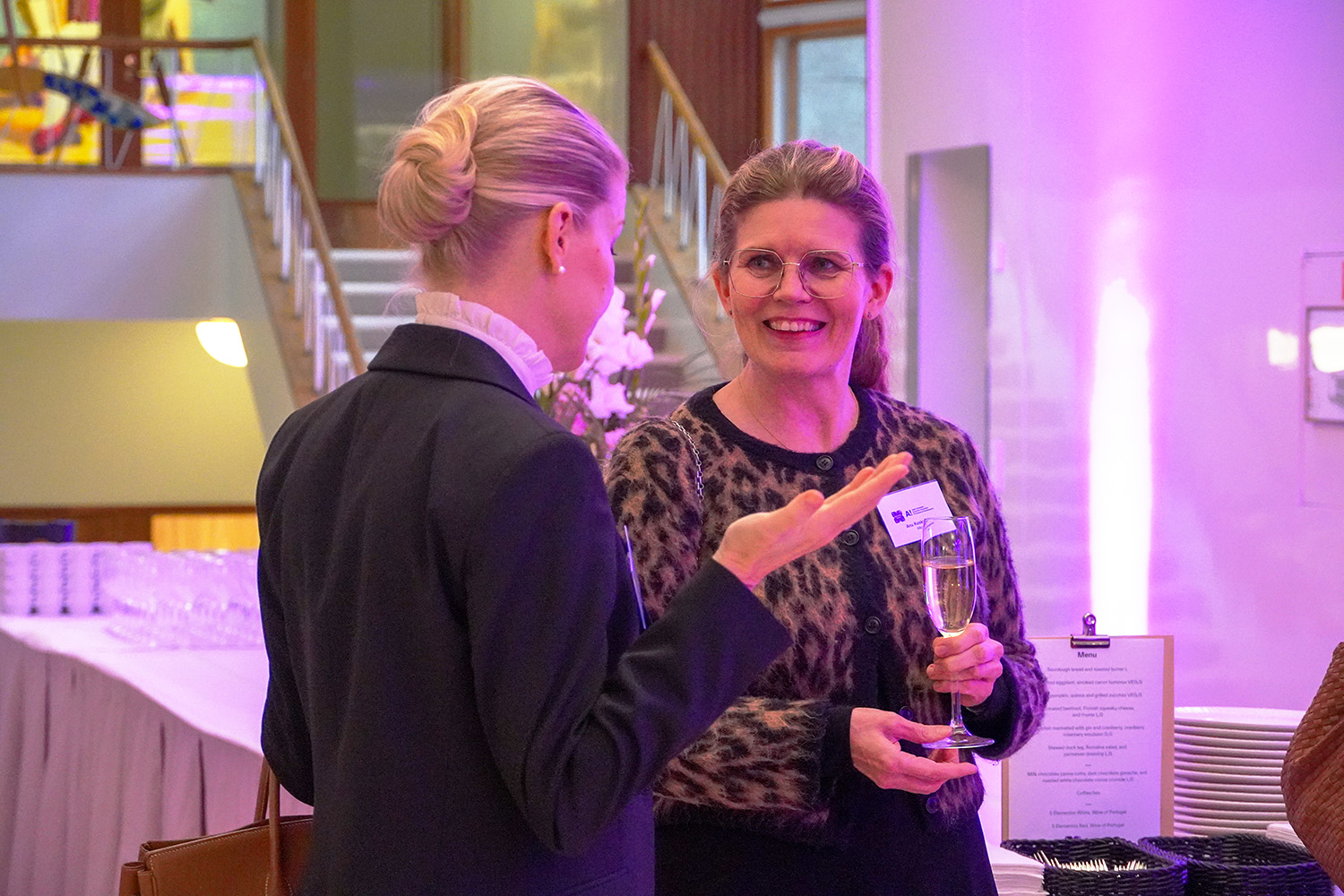
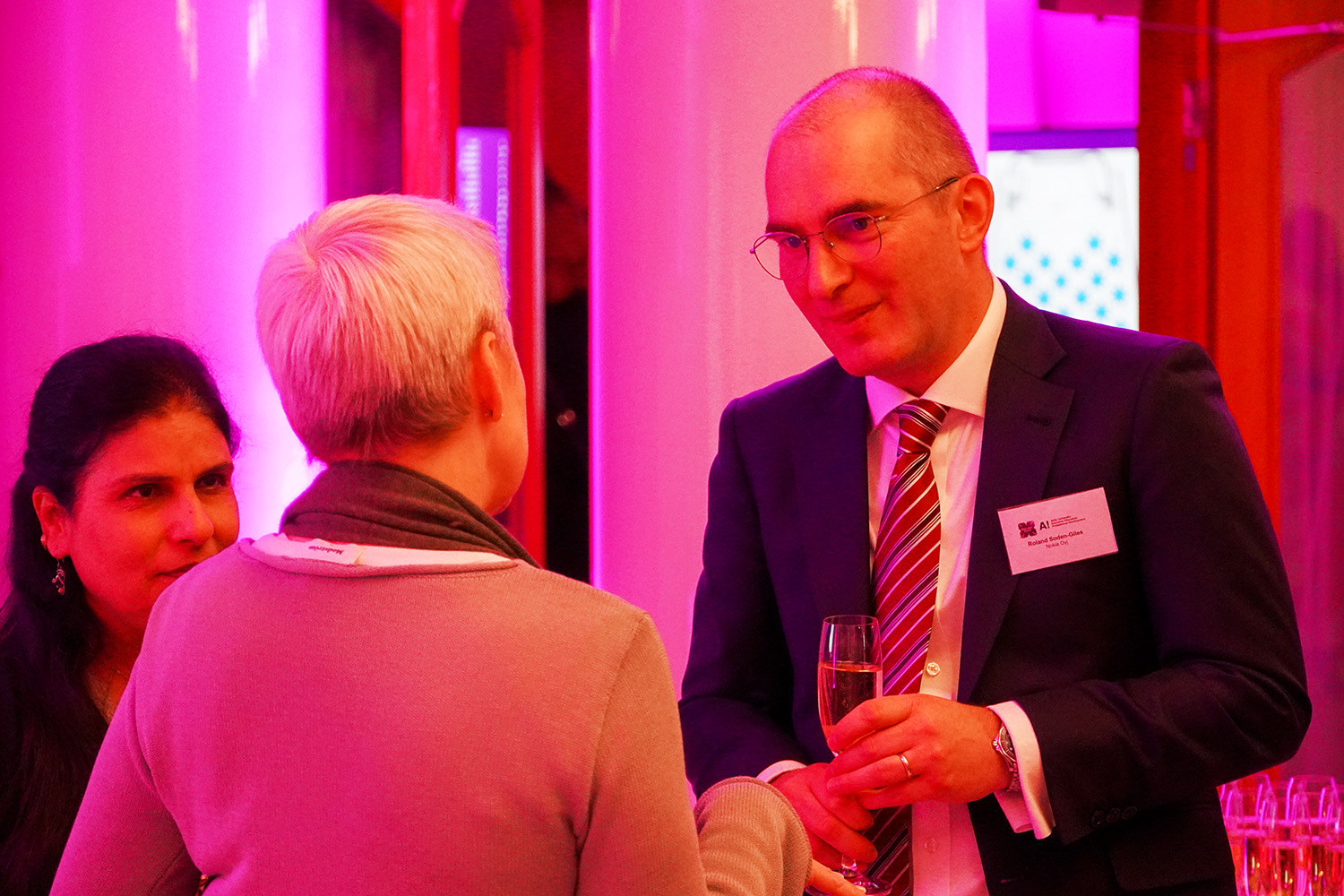
Around 120 top leaders and executives preregistered for the event held in Aalto University Töölö.




















